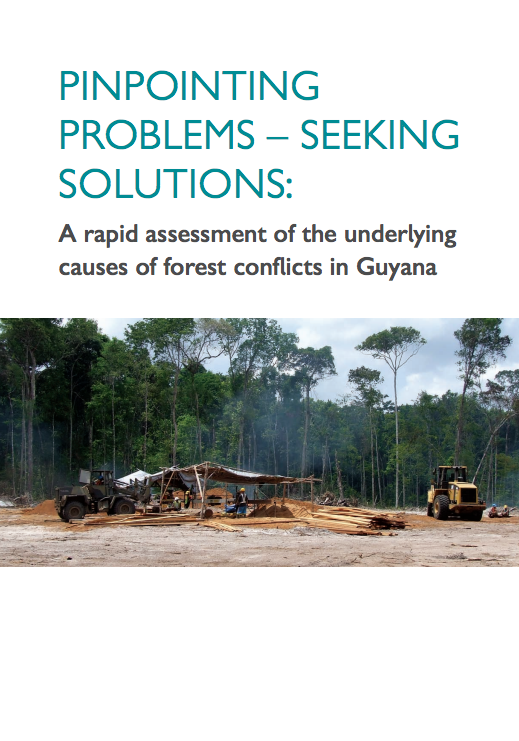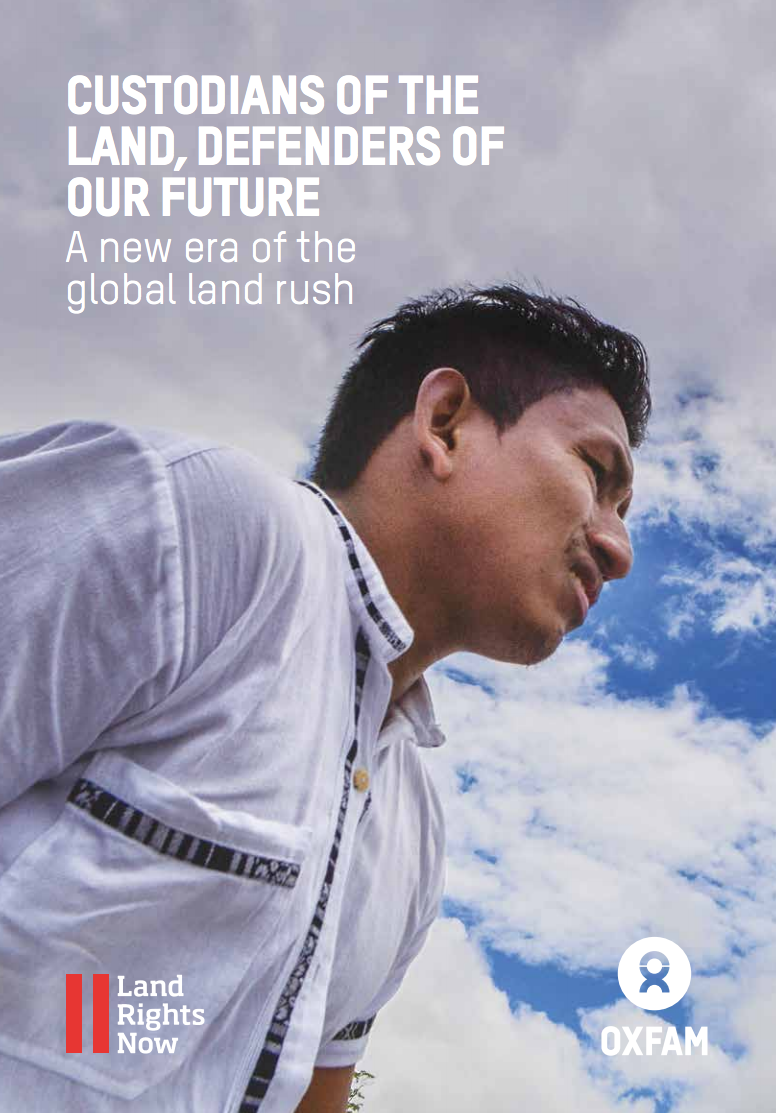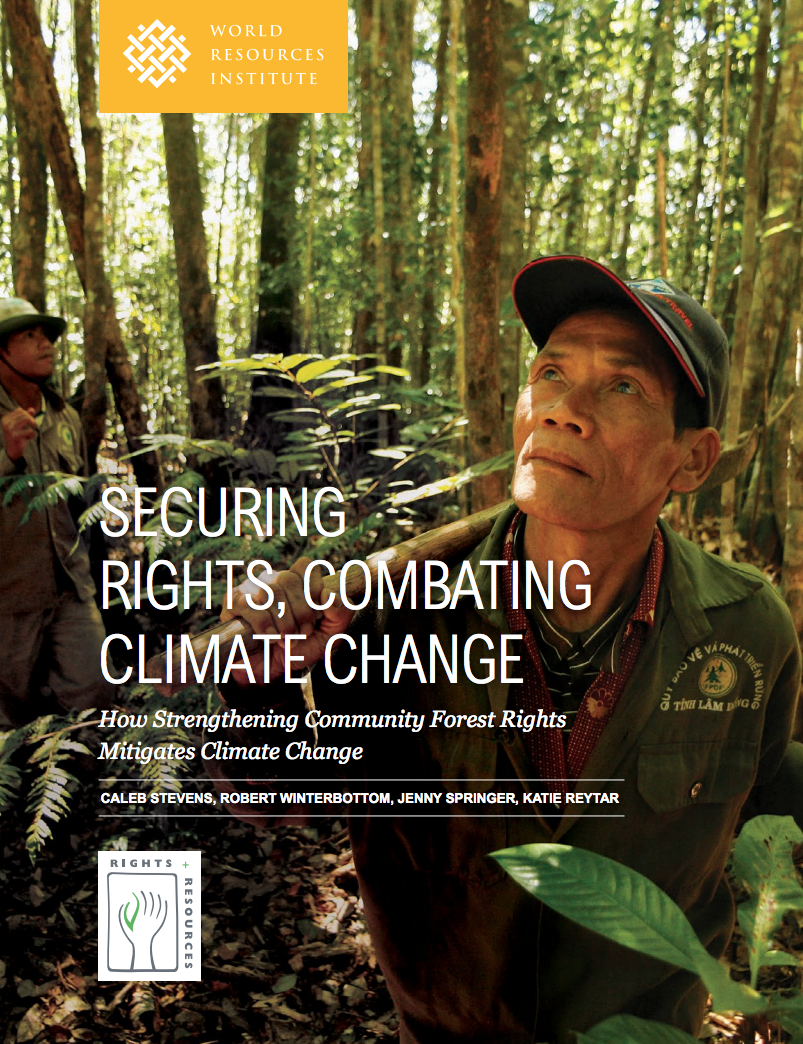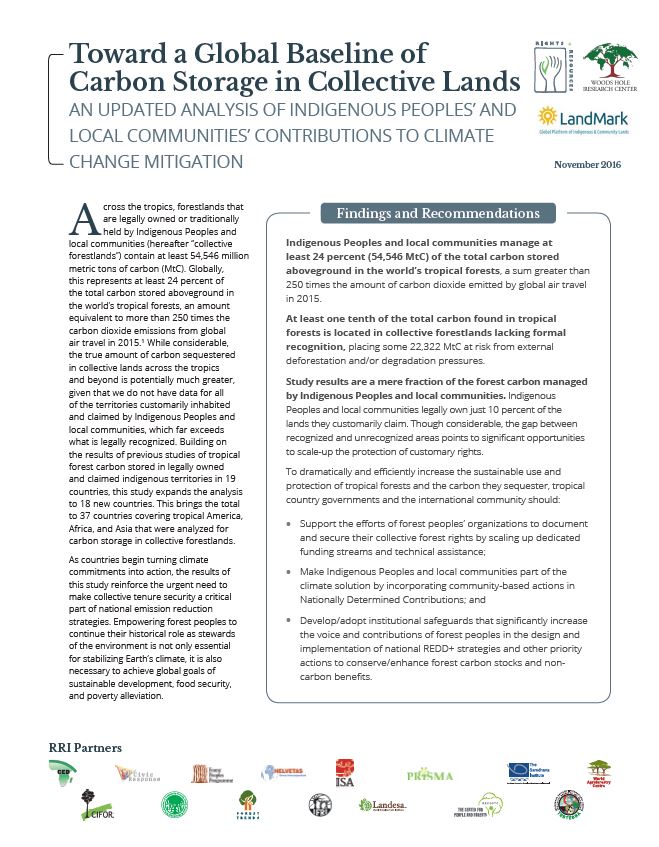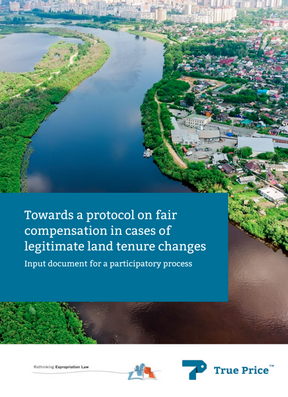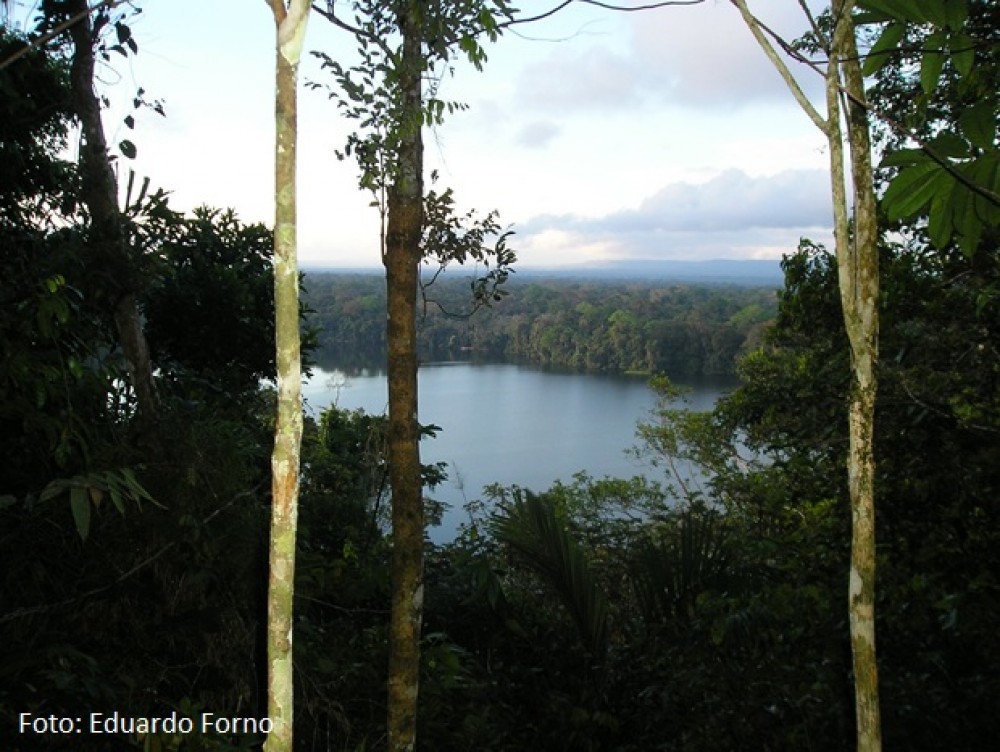Pinpointing problems – seeking solutions: A rapid assessment of the underlying causes of forest conflicts in Guyana
Based on the experiences of Amerindian communities in Guyana, this briefing presents some of the main causes of forest conflicts in the country as well as recommendations for how to address these. In particular, the document presents the following points:
• Lack of full recognition of indigenous peoples’ land rights in line with international law, absence of effective FPIC procedures and limited transparency in forest governance are key underlying causes of forest-related conflicts in Guyana;

